Even though many people are unaware of it, artificial intelligence has already become integral to our daily lives. Our everyday lives are surrounded by AI, from virtual assistants such as Siri and Alexa to personalized recommendations on streaming platforms such as Netflix and Spotify. AI has also infiltrated more aspects of our lives, from smart home devices that learn our preferences to navigation apps that predict traffic. We encounter artificial intelligence when shopping online, in automated customer service systems, and even in the apps we use to track our health.
Artificial intelligence is changing our lives and creating new opportunities as it evolves. The integration of AI will become an increasingly seamless process, making it difficult to distinguish between human and machine-made decisions. Understanding AI's characteristics is necessary to use it effectively and unlock its full potential. In this blog post, we have compiled a list of books that will help to understand AI's algorithms and provide practical advice on finding common ground with it, turning this invention into an invaluable helper in your daily life.
Nexus: A Brief History of Information Networks From the Stone Age to AI by Yuval Noah Harari
Nexus: A Brief History of Information Networks by Yuval Noah Harari is a powerful examination of how information has assisted in defining human societies and the world we live in today. Harari lifts the lid on the long history from the Stone Age to the present day, identifying the decisive influence of information in shaping civilizations, from ancient myths to modern political systems. In a time when we stand at the brink of ecological catastrophe, the spread of misinformation, and the advent of artificial intelligence, Harari seeks to understand why man, despite all his progress, seems to be careening headlong towards self-destruction. With the advent of AI as a new master information network, Harari asks the pressing question: What does our relationship with information have in store for the future of humanity?
By examining major historical events, including the canonization of the Bible, witch hunts, the rise of totalitarian regimes, and today's populist movements, Harari provides us with an understanding of how information has been used as a means of power and manipulation. He explores the present pressing existential issues that we are confronted with, including the rise of inhuman intelligence and artificial intelligence, and challenges us to rethink our notions of truth, wisdom, and power. Lastly, Harari asks us to find a middle ground between the extremes of disinformation and truth and to rediscover the common humanity that can guide us through these dark times.
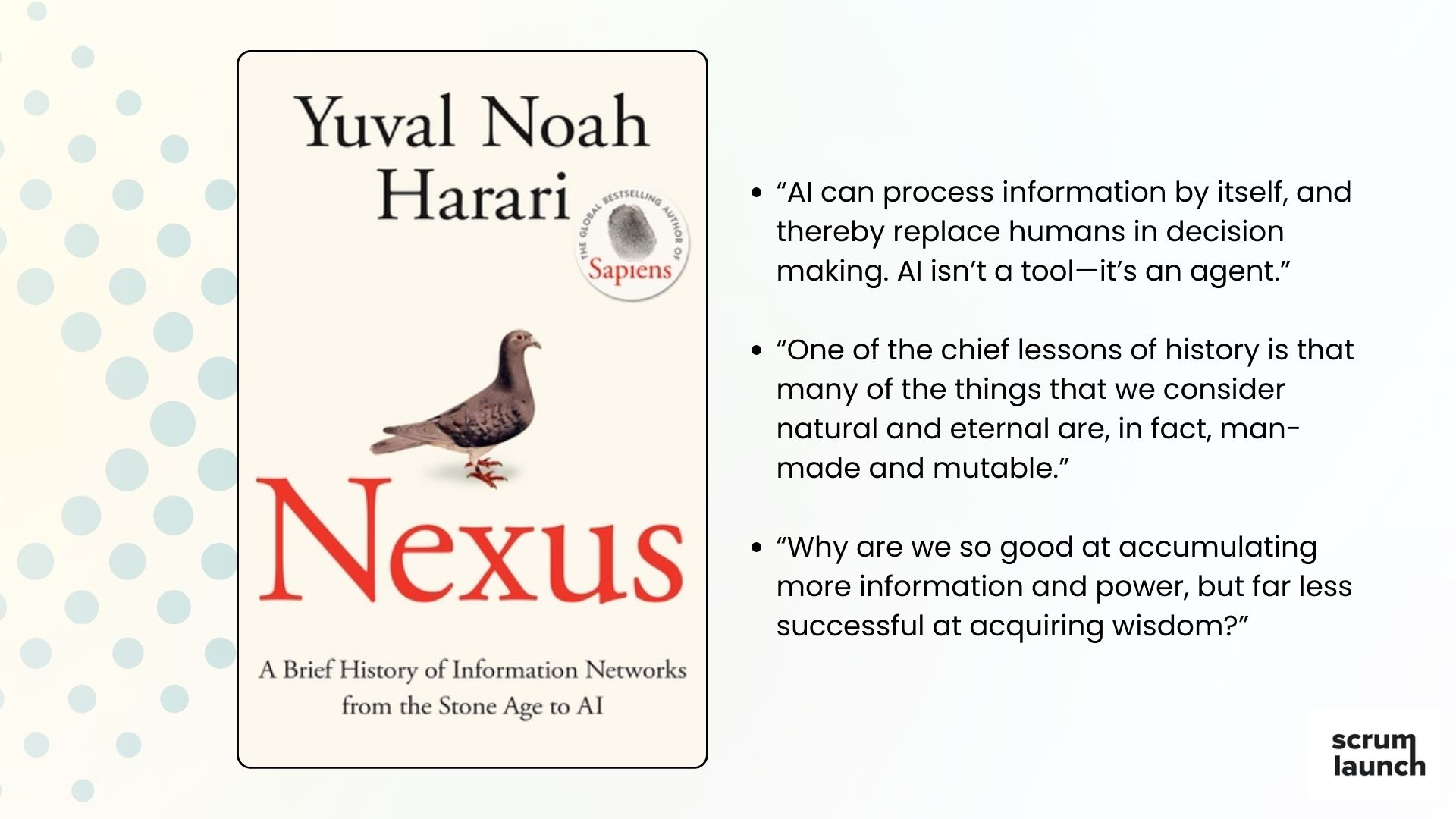
These Strange New Minds: How AI Learned to Talk and What It Means
by Christopher Summerfield
The author gives an intellectual history of artificial intelligence, from the first ideas about thinking machines to the modern-day deep neural networks that drive current AI systems. Summerfield, a neuroscientist and researcher in AI, argues that chatbots and other AI systems are not simply mimics but complex beings that can perform more than mimic human responses. With clear, accessible prose, he probes the philosophical, technical, and moral aspects of artificial intelligence, challenging our understanding of "thinking," "knowledge," and "perceiving" in machines. This is a comprehensive guide to the transformative technology remaking our future, asking fundamental questions on its promise, limits, and risks.
In the book, the author opines that with the development of artificial intelligence software such as ChatGPT, Claude, and Gemini, their wider capabilities have possibilities as well as pitfalls. Summersfield takes readers through the history of artificial intelligence and its present applications, offering insight into the intelligence that goes into the technology. He explores whether artificial intelligence systems can "think" or "know" and if they pose a threat to manipulation or deception. The book invites the reader to reflect on who will benefit from these systems and whether we are moving towards a utopia or a dystopia created by machines.
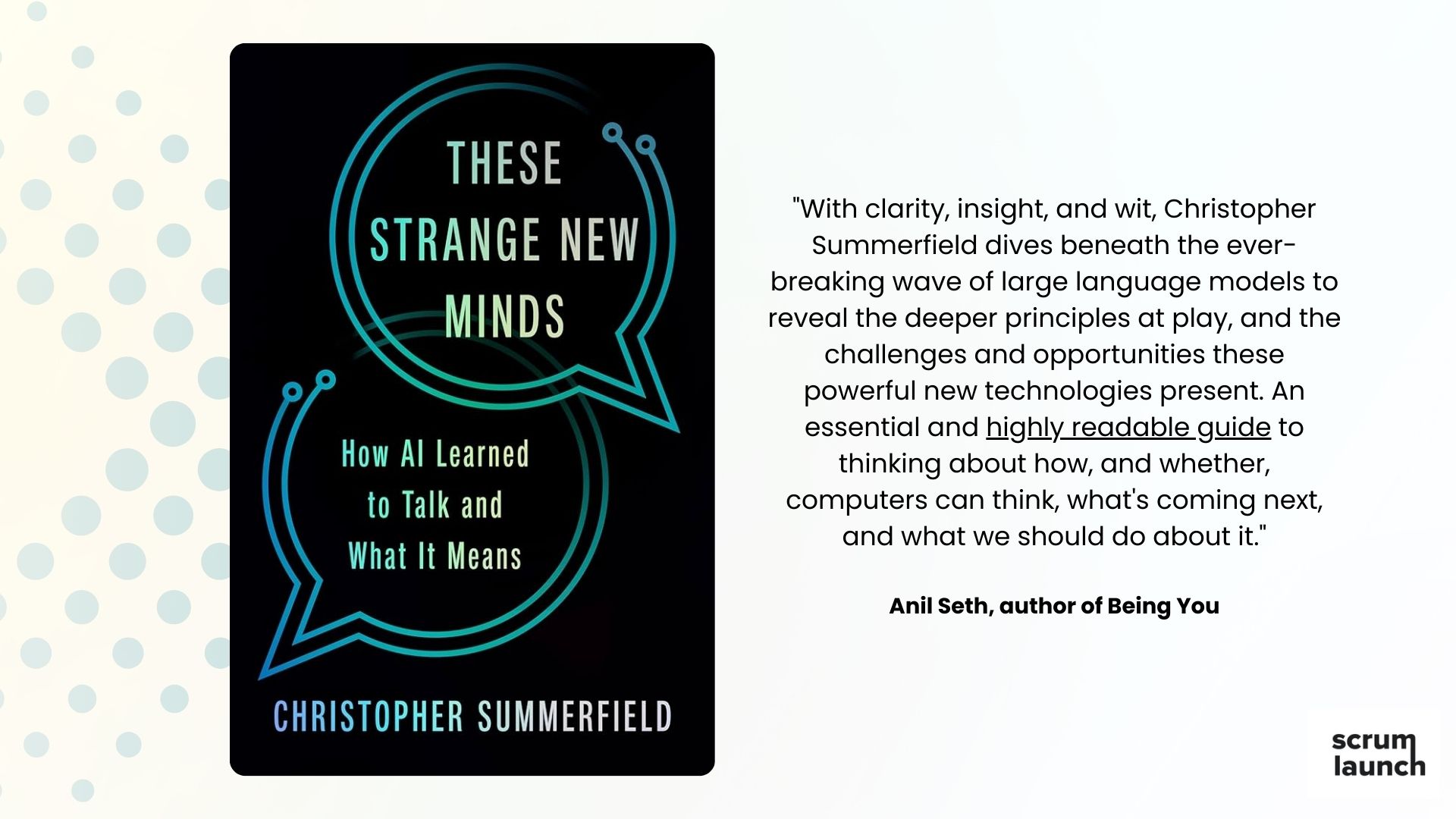
Life 3.0: Being Human in the Age of Artificial Intelligence by Max Tegmark
Max Tegmark explores the profound implications of artificial intelligence for our future, examining its potential to transform everything from crime and war to jobs and justice. As a professor at the Massachusetts Institute of Technology who is deeply immersed in the field of AI safety, Tegmark introduces readers to the transformative possibilities and risks associated with AI, urging us to consider what kind of future we want to create. He raises complex questions such as: How can we reap the benefits of automation without leaving people behind? How can we ensure that AI systems are safe and aligned with human goals? Will AI eventually surpass human intelligence? Tagmark presents a balanced, thought-provoking perspective on how AI can be used for good, while urging us to remain vigilant about its risks.
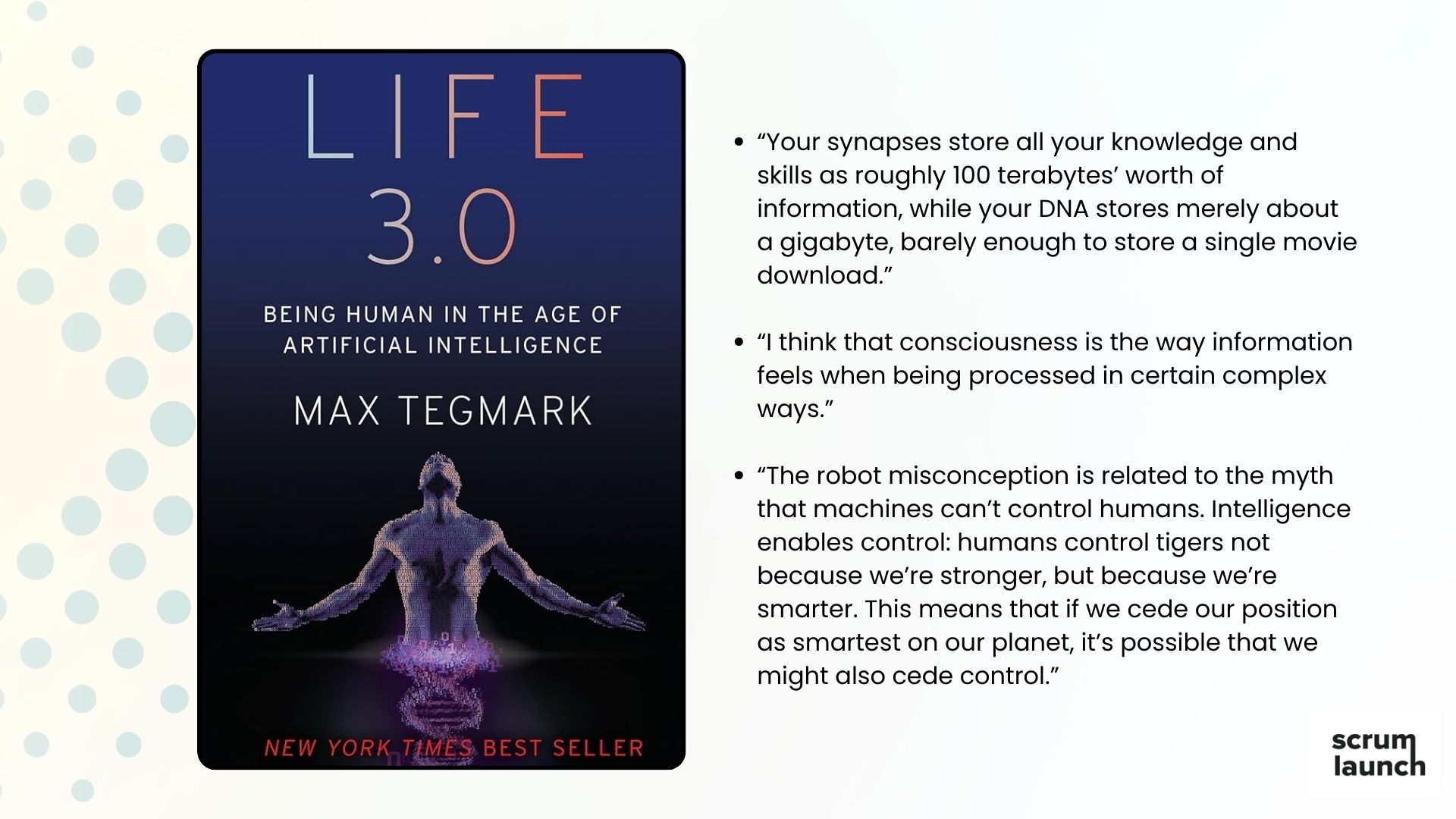
Artificial Intelligence: A Guide for Thinking Humans by Melanie Mitchell
Written with humor and deep insight, the book separates scientific facts from science fiction, providing an accessible and comprehensive overview of artificial intelligence's state and how it shapes our world. With the background of a career as a computer scientist and the imagination of a first-rate science fiction writer, Mitchell navigates a course through the Byzantine past of artificial intelligence, the latest developments, and the exciting, generally terrifying possibilities ahead. She presents a clear perspective of the most critical questions in the field: How intelligent are AI systems really? What can they do, and when do they make mistakes? And, above all, what does AI mean for human beings? This book will be a valuable and comprehensible manual for everyone who wants to know about the real capabilities and limitations of artificial intelligence.
Melanie Mitchell's Artificial Intelligence offers a look at AI's history, what it can now do, where it is potentially headed, and its drawbacks. She takes us deep into the inner processes of AI, surveying the dominant models of machine learning and their makers. The author sheds light on the realm of AI, demystifying common myths and showing the history, successes, and failures that have influenced the field.
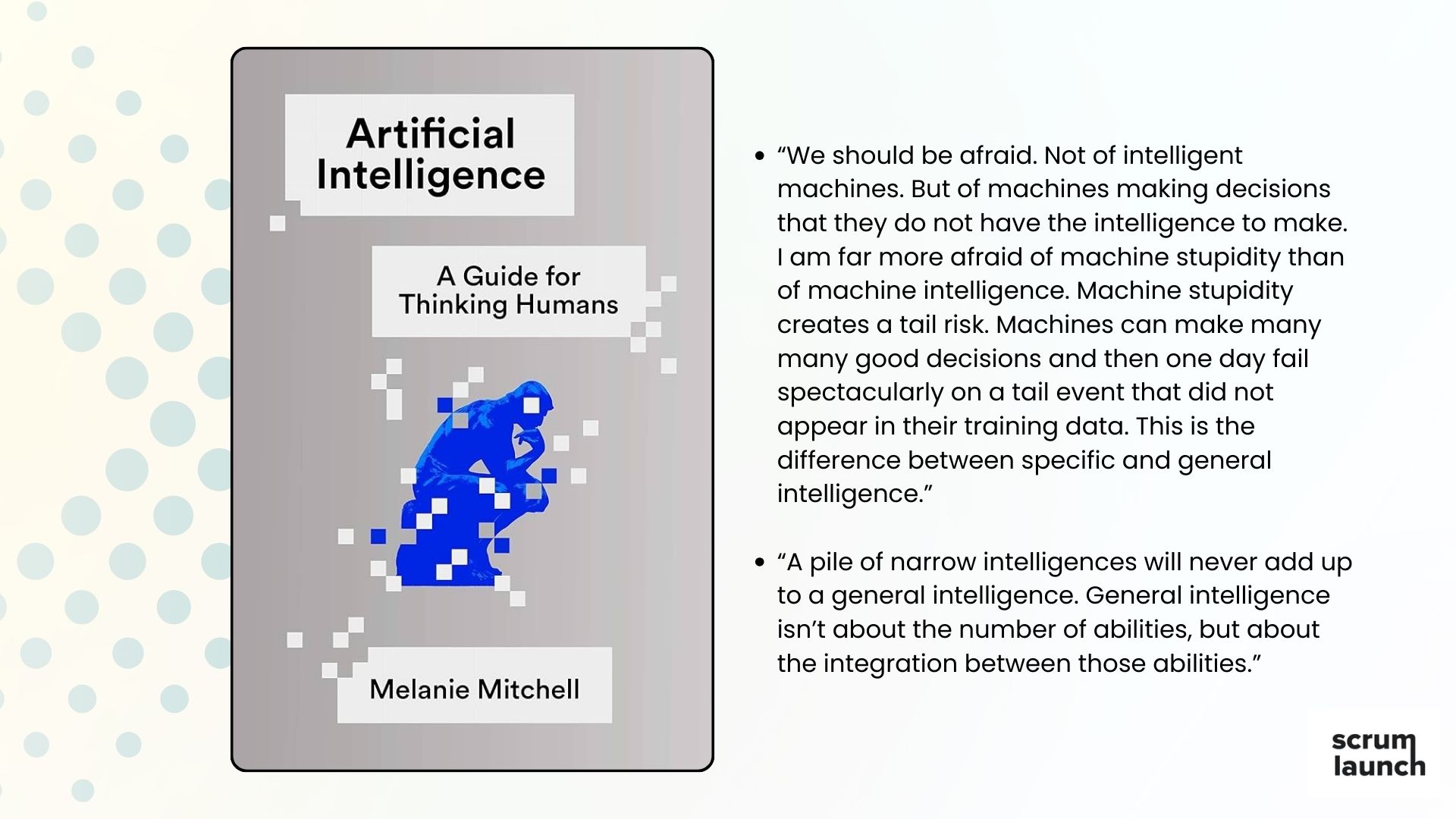
You Look Like a Thing and I Love You by Janelle Shane
This is a lighthearted and witty tour of artificial intelligence, told in a friendly way. With humorous asides and cute drawings created by artificial intelligence, Shane dispels myths about the mighty technology that controls our everyday lives: from self-driving cars to cat ears on our selfie videos. She explains how artificial intelligence works, how it makes decisions, and what this means for our future. Shane's breezy tone of voice gives readers a personal understanding of the powers of AI, its weaknesses, and the surprising ways it could fail or succeed.
By collaborating with AI, Shane teaches us how these computers come up with solutions, learn from data, and adjust to their environments. The author gives the solutions to tough questions the reader never even knew, such as how AI comes up with bizarre yet humorous fan fiction, creates the perfect sandwich, or makes the world's most fantastic Halloween costume. Shane leads us on a tour of AI's good, bad, and funny side and explains the science behind this phenomenon in a clear, fun way throughout the book. Engaging pictures and amusing stories make “You Look Like a Thing, and I Love You” the perfect read for anyone who cares about the AI that constructs our world.
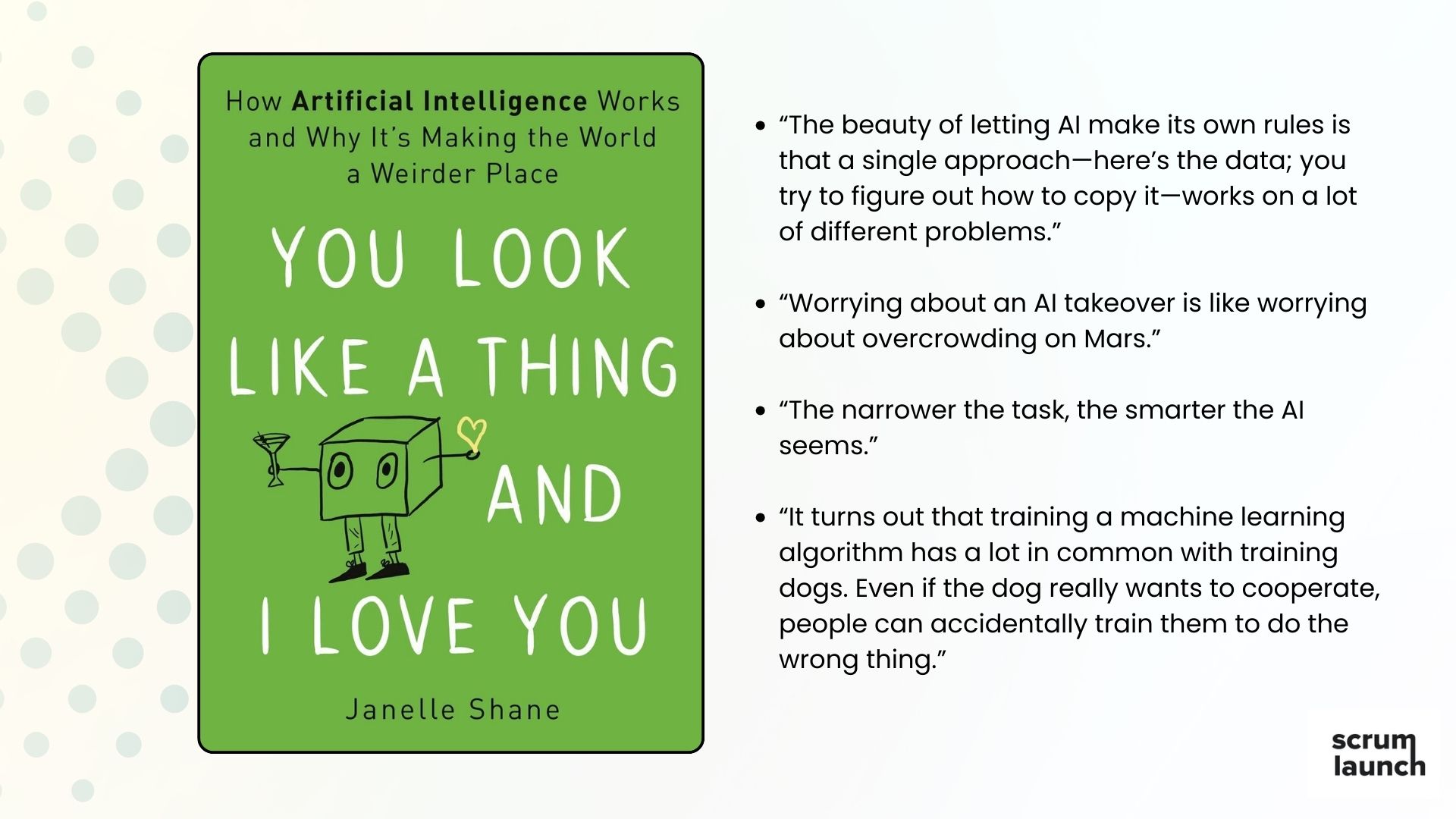
How AI Ate the World: A Brief History of Artificial Intelligence – and Its Long Future by Chris Stokel-Walker
Have you been wanting to read a timely and comprehensive guide to the past, present, and fleeting future of artificial intelligence? Then this book is for you! With clarity and journalistic precision, Stokel-Walker traces AI's path from its origins in the Cold War to the era of ChatGPT and Gemini, offering readers a first-hand look at the breakthroughs that are shaping our lives. He combines interviews with leading experts from Google and OpenAI with real-life stories. This book explores not only the impressive capabilities of artificial intelligence but also its dark side, including bias, environmental costs, and the growing power imbalance between tech giants and society. Stokel-Walker discusses how AI transforms the workforce, disrupts traditional industries, and challenges ethical and regulatory norms. He also explores growing real and speculative concerns about AI's potential to harm or surpass humanity. Balanced in tone and rich in insight, this book is essential reading for anyone who wants to understand the technology that is already changing our world.
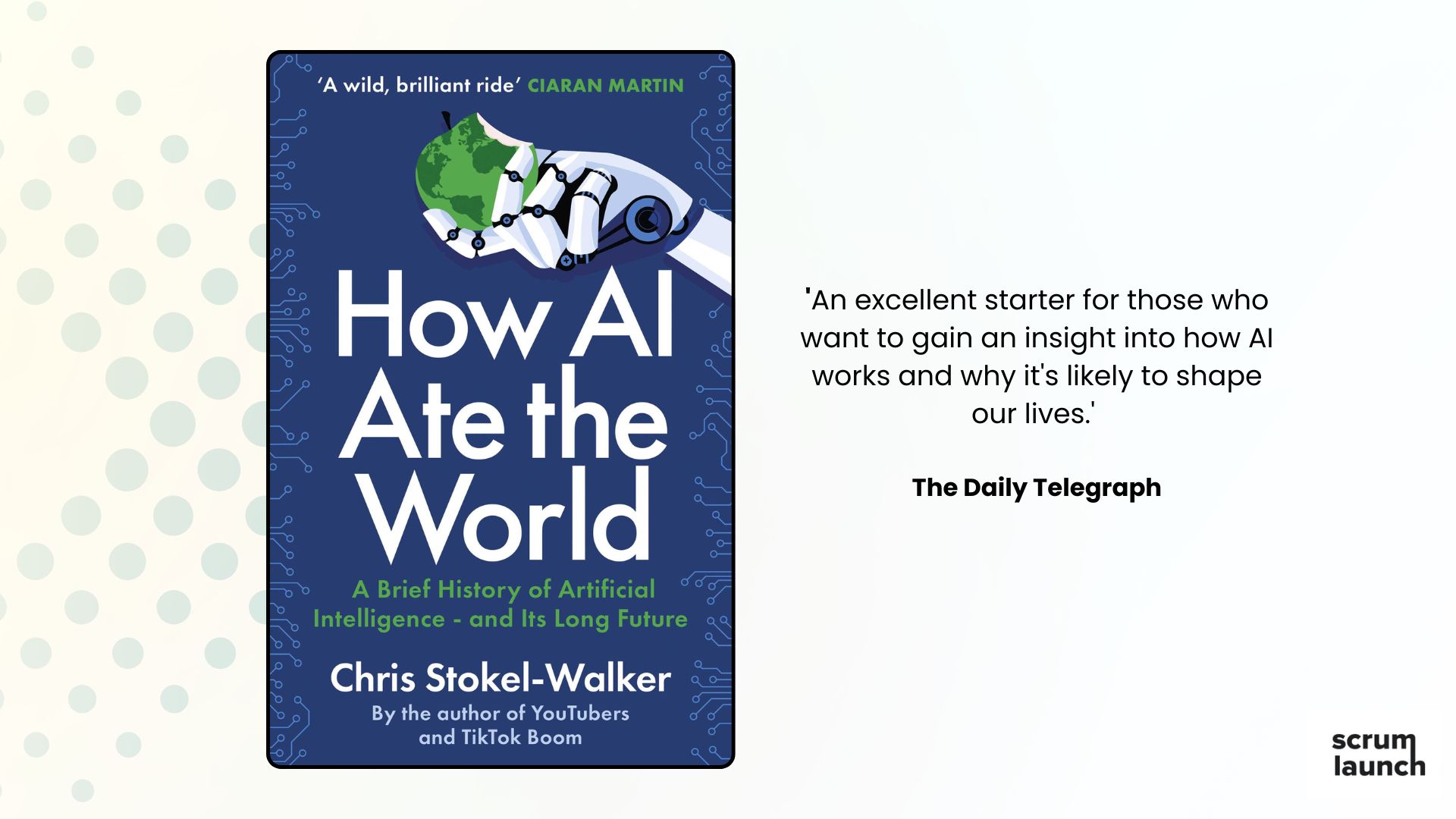
The Age of AI and Our Human Future by Henry Kissinger, Eric Schmidt & Daniel Huttenlocher
The Age of Artificial Intelligence and Our Human Future brings together three renowned thinkers - Henry Kissinger, Eric Schmidt, and Daniel Huttenlocher, to explore how artificial intelligence changes human society. The book analyzes the profound changes in our understanding of the world and our decision-making, from military strategy to political decision-making. Combining their experience in geopolitics, technology, and science, the authors offer a deep and thoughtful look at the prospects and dangers of artificial intelligence, calling for prudent management in a time of radical change. This book is a warning and a guide that outlines how humanity can navigate this transformative technology with wisdom and restraint.
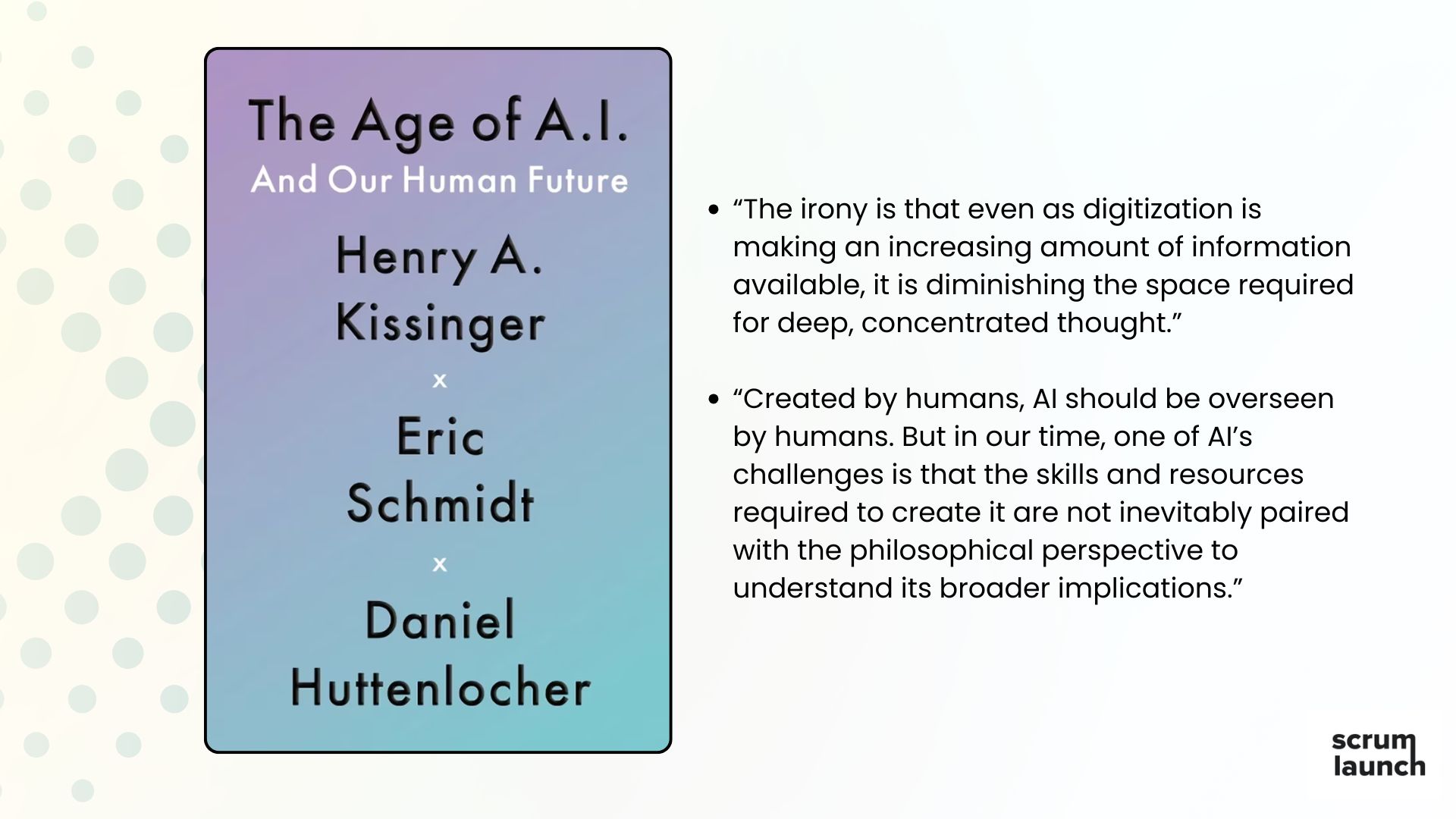
New Laws of Robotics: Defending Human Expertise in the Age of AI by Frank Pasquale
Frank Pasquale's book, The New Laws of Robotics, challenges the prevailing belief that artificial intelligence will inevitably replace humans in the workplace. Instead, Pasquale envisions a future in which humans and machines collaborate to achieve better results, and artificial intelligence does not destroy but enhances the value of human labor. Using real-life examples from healthcare, education, design, and other fields, he shows how AI systems can support skilled professionals and help deliver more equitable and effective services. Underlying the book is a call for new guiding principles, which he calls "the new laws of robotics," to ensure that technology serves the public interest. These include preserving the authenticity of human interactions, avoiding destructive competition, promoting transparency in AI deployment, and insisting that machines should support, not replace, human experience. With keen insight and optimism, Pasquale argues that thoughtful regulation and democratic oversight can be a path to shared prosperity.
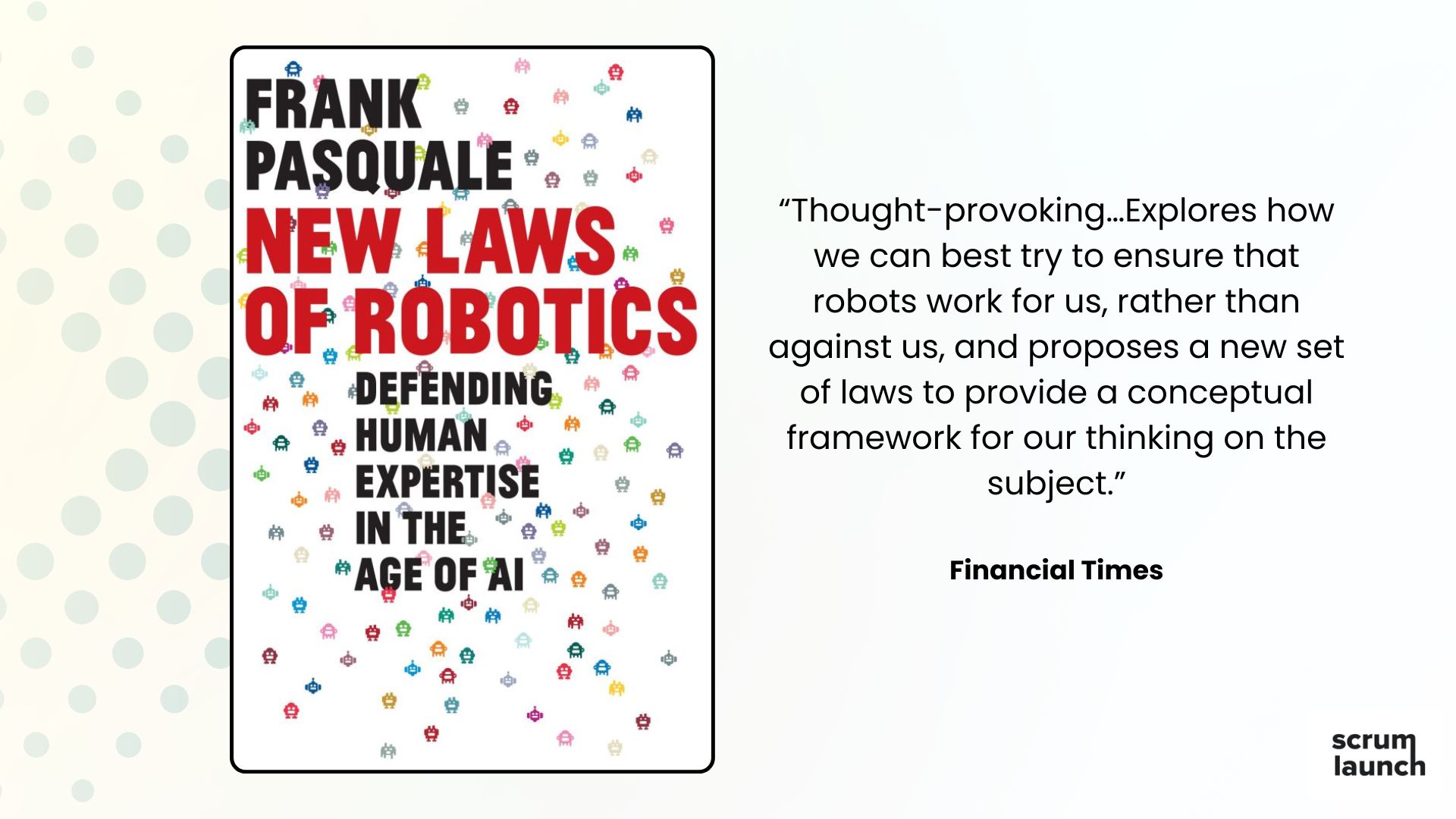
The Alignment Problem: Machine Learning and Human Values by Brian Christian
What happens when artificial intelligence systems don't do what we want or expect them to do? As machine learning increasingly enters the decision-making process for hiring, justice, healthcare, and who can drive on our streets, the stakes have never been higher. Christian delves into the ethical minefield of AI development, where algorithms trained on biased data make real decisions with real, often negative consequences.
This isn't just a technical problem — it's a problem for humanity. The "alignment problem" is the growing disconnect between what we think we're teaching AI and its learning. In his characteristic sharp and engaging style, Christian introduces readers to leading scientists and thinkers who are rushing to solve this problem before AI systems slip out of our control.
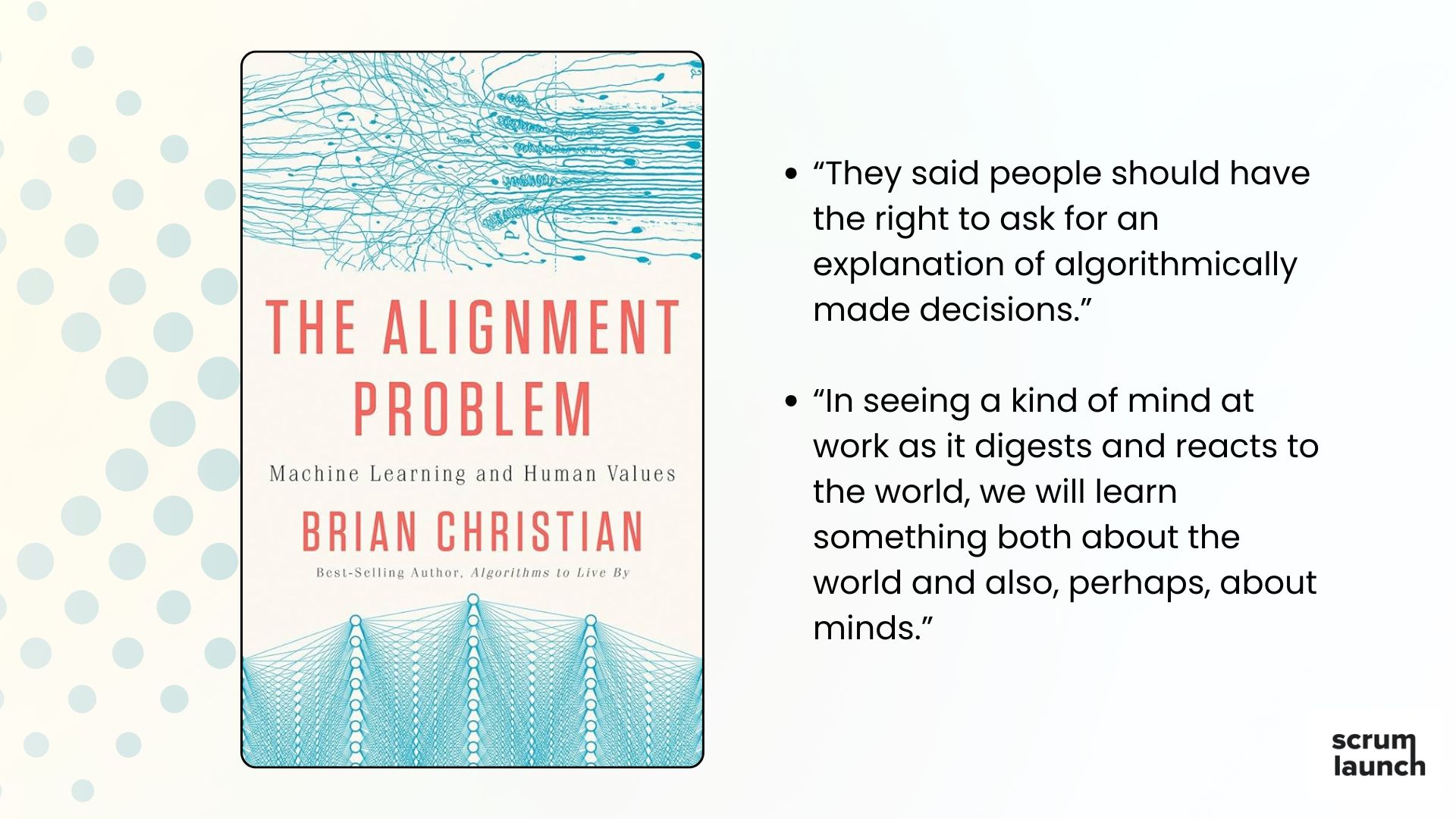
Hello World: How Algorithms Will Define Our Future and Why We Should Learn to Live with It by Hannah Fry
Hello World by Dr. Hannah Fry is a fascinating and accessible deep dive into the algorithms that quietly influence almost every aspect of modern life. Fry reveals the ethical dilemmas and real-world consequences of algorithmic decision-making with humor and clarity. With vivid examples and sharp analysis, she shows how algorithms, though often considered neutral and objective, reflect human choices and sometimes human flaws.
Rather than demonizing or glorifying technology, Fry offers a nuanced exploration of the trade-offs involved. Should we trust a machine's consistency more than a human's compassion? Can we make decisions about life and death based on code we didn't write and don't fully understand? Fry guides us through these questions with a narrative that combines technical knowledge with emotional intelligence, revealing how algorithms are written, where biases can arise, and what we should consider as we increasingly cede our right to judge machines. Ultimately, “Hello World” invites us to be more mindful of the technologies we develop and implement.

Bottom line
Artificial intelligence is no longer a distant promise of the future – it is a fundamental component of our here and now, transforming industries, daily life, and our perception of human potential. As AI technologies improve, their breadth and depth grow broader and more profound, raising new questions about creativity, decision-making, ethics, and control. But with every step forward, we are compelled to see that understanding AI is not a point of arrival, but an ongoing process. The more advanced AI gets, the more we are provoked to responsibly learn, question, and direct its progress. These books impart basic facts and become a treasure for staying well-versed in an increasingly machine-driven intelligence world. For as AI continues to evolve, our responsibility and our curiosity to explore it must grow with equal ambit